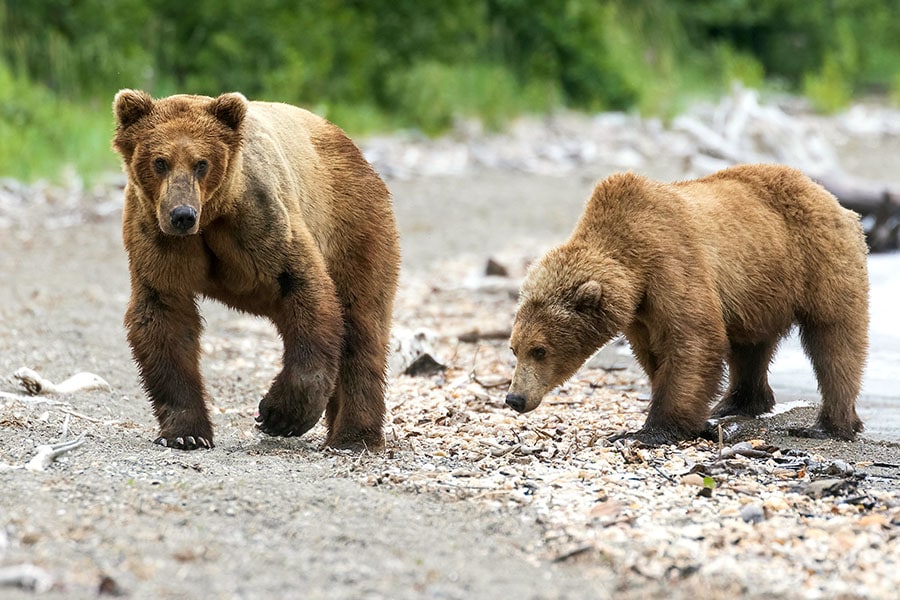
Fat Bear Week heavyweight contest grips North American web users
Each year, Katmai National Park in the US state of Alaska holds a contest to raise awareness about the protection of Alaska's brown bears. Everyone can vote online until October 11—a day also known as Fat Bear Tuesday—in honour of these massive creatures who call this region of the Great North home
 Brown bears feed mainly on salmon between June and October to gain enough weight before winter. This weight gain is essential for them to survive over the winter.
Image: Shutterstock
Brown bears feed mainly on salmon between June and October to gain enough weight before winter. This weight gain is essential for them to survive over the winter.
Image: Shutterstock
As winter approaches, many of us are tempted to hole up at home like a bear in its den. But hibernation is about more than just getting snug and not going out: bears must prepare themselves by building up huge fat reserves. This process is the focus of Fat Bear Week, an autumn trend not just out in nature but also on the web.
Each year, Katmai National Park in the US state of Alaska holds a contest to raise awareness about the protection of Alaska's brown bears. Everyone can vote online until October 11, a day also known as Fat Bear Tuesday, in honor of these massive creatures who call this region of the Great North home.
Some of the bears are fan favorites, like Otis; this male with a drooping right ear is a four-time Fat Bear Week champion. He is also the current title holder. His secret? Patience. Otis is known to wait for the salmon to swim up the Brooks River to come to him, rather than actively chasing them like some of his younger counterparts do. This particular technique once allowed him to gobble up 42 salmon in one catch.
But he faces stiff competition in the 2022 edition of Fat Bear Week. Otis has to compete with younger—and more energetic—bears such as Walker, Grazer, Holly and Chunk. Chunk is a large bear with a distinctive scar on his muzzle. He has significant fat reserves, making him one of the largest and most dominant males on the river.
Getting ready for hibernation
Every year, tens of thousands of internet users participate in electing the individual bear who will hold the title of fattest brown bear in Katmai National Park. The contest attracted more than 600,000 animal lovers in 2021. This popularity is the pride and joy of Mike Fitz, a former Katmai National Park ranger who created Fat Bear Week in 2014. "I thought it would be a quirky thing Katmai could do every year, and it is, but I did not expect it to be this popular,” he told the New York Times.







